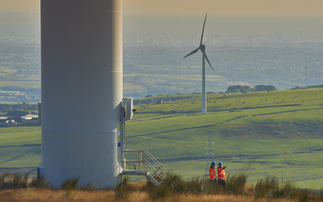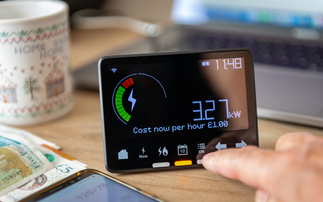Paul Sheffield of Haven Power offers an invaluable guide to how businesses can maximise the savings and revenues that come from generating their own green power
As the world of energy changes, your business can cut costs and carbon emissions by producing (as well as consuming) low carbon electricity while also boosting your income.
So, how do you generate your own low carbon power, and what are the main benefits?
The Generation Game
Your ability to generate low carbon electricity is not only dependent upon your willingness to invest in the necessary infrastructure. The location of your premises and the type of building(s) you occupy will also be factors, alongside the views of your local planning authority.
These considerations will affect the availability and feasibility of your self-generation options. These may include wind turbines and small hydro schemes, plus solutions using biomass, anaerobic digestion, or Combined Heat and Power (CHP).
You can also follow the lead of many other UK businesses and use solar photovoltaic (PV) panels. However, weather constraints could make it difficult to produce all the power you require from solar, without having access to large areas of space, or the desire to invest heavily in larger installations. This means you may need an alternative supply of electricity that you can rely upon.
As part of its sustainability drive, business electricity supplier Haven Power has recently installed 280 panels on the south-facing roof of its headquarters in Ipswich. This investment was part-funded by the 12 per cent saving achieved by replacing fluorescent lighting throughout the office with light-emitting diodes (LEDs).
The company has also invested in a BMW i3 electric pool car and charging points and, in the coming months, will also install an onsite battery.
Battery storage
If you're considering generating your own power, it's worth thinking about battery storage too. This will allow you to store any surplus of self-generated electricity and then use it later when your business requires it.
You can also charge the batteries from the grid during cheaper, off-peak periods of the day. Once they're charged, you can draw on the stored power when you need it (which may include in the more expensive peak periods).
The benefits of self-generation - cost reduction
Your self-generated power can counterbalance the costs associated with importing power from the Grid (if your business does so). There are three aspects to consider:
Lower your Third Party Costs - Your electricity bills include more than just the power you're using - in fact, approximately 60 per cent of the total can come in the form of Third Party Costs (TPCs).
By paying TPCs, your business is covering its share of the national and/or regional costs of services such as distribution and maintenance. You can lower your TPCs by drawing less energy from the Grid - either by using your self-generated power as you produce it, or calling on your stored energy from a battery.
Reduce your peak time usage and Triad costs - The cost of electricity goes up when demand rises. So it makes sense to understand when these peak times are due to occur - and then reduce your consumption, or avoid the peak completely.
Ask your supplier about the likely timing of these peaks, including the Triads - the three half hourly settlement periods of highest demand in Great Britain, separated by a minimum of 10 clear days. These normally occur between November and March each winter.
There are three main ways to reduce or avoid peak-time costs:
- Generate enough electricity to lessen or remove your reliance upon the Grid
- Switch to a back-up generator
- Draw power from a battery
Reduce your carbon emissions - Your business can join the growing number of organisations committed to being more environmentally responsible.
Self-generation through wind, solar, biomass or anaerobic digestion can help you cut down your external costs at the same time as reducing your carbon dioxide emissions.
The benefits of self-generation - increased revenue
You can use your own electricity as a source of revenue too, using these three methods:
Sign up to Power Purchase Agreements (PPAs) - Essentially, PPAs let you sell some or all of the power you generate. It's possible to do this through a private-wire agreement with an energy consumer nearby, or via an established supplier that buys energy from self-generators.
Either arrangement can give you a level of security on the value of your self-generated electricity for an extended period (i.e. for the length of the agreement). You may also be able to take advantage of market fluctuations and sell your power at a more lucrative rate. The route you choose will depend upon the needs of your business.
Change your power consumption patterns - If you're a self-generator in the right location, you can earn additional revenue by exporting your power at certain times of day. You can also save by not using electricity during the winter's three premium-priced periods (the Triads).
If you utilise your self-generation to fulfil your on-site needs (rather than export it to the grid), you can save more against your import costs during periods of higher charges. Usually, these periods are from around 4pm to 7pm on weekdays, although it can vary between locations (see ‘The area you're in' below).
Participate in Demand Side Response (DSR) schemes - Taking part in a DSR scheme involves agreeing to alter your energy usage, or export to the Grid, at certain times (e.g. during periods of peak demand). So, it's a reward for being flexible in the way you consume your power.
This will lower your consumption costs and bring in additional income, as National Grid will pay you for taking these actions since they help it to balance the system.
Two additional considerations:
The payback period - Based on our experience, optimistic payback periods range from three-to-five years - although the type of technology, and other factors, can have an impact.
Like other energy suppliers, Haven Power would work closely with your business to assess your needs. Our recommendations would also include tailor-made energy solutions offering you the best value and returns.
The area you're in - Your location can determine your ability to set up as a generator or to export your surplus power. For example, Haven Power had to apply for planning permission before installing its solar panels, as well as seek authorisation from the local District Network Operator (DNO) to export surplus electricity.
You can find out about export limitations in your own area by checking the status with your distributor. It's also worth having a conversation with your local planning authority.
To discover how Haven Power's Energy Services team can support your self-generation initiative, call 01473 725943 or visit www.havenpower.com/contact-us
Paul Sheffield is chief operating officer at Haven Power








